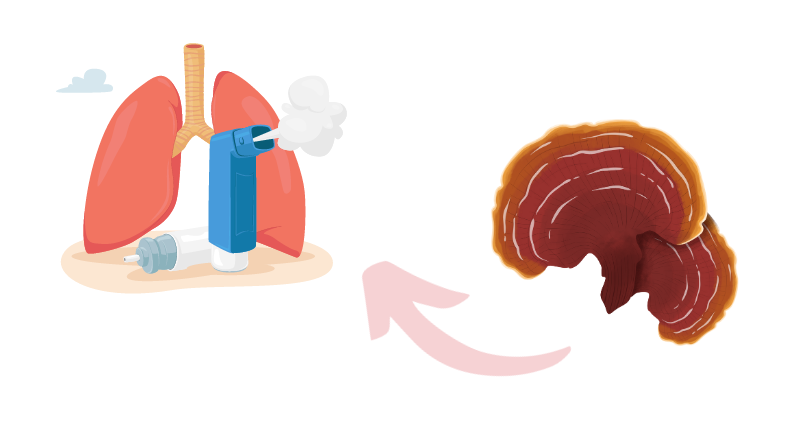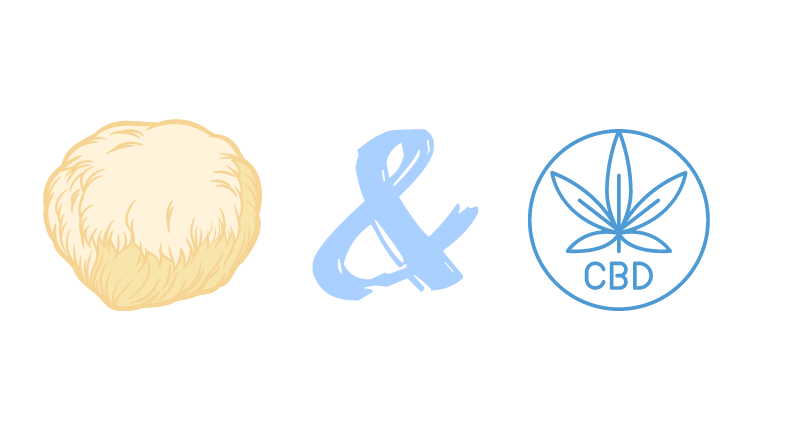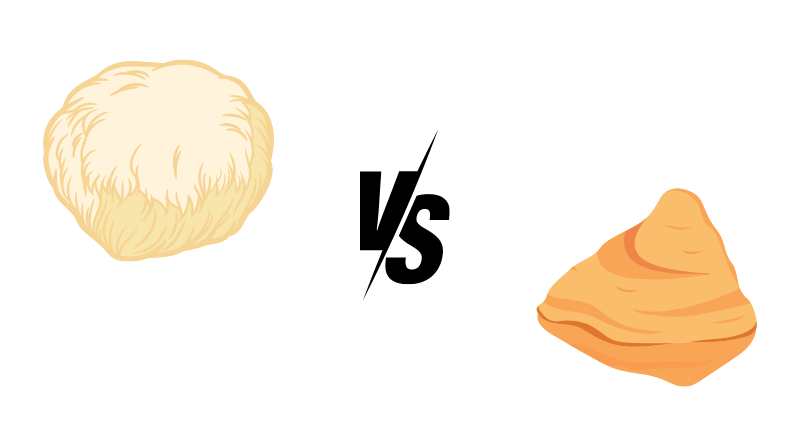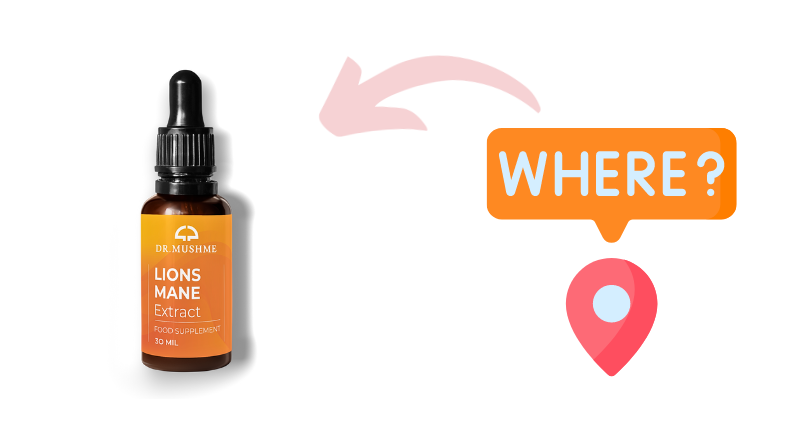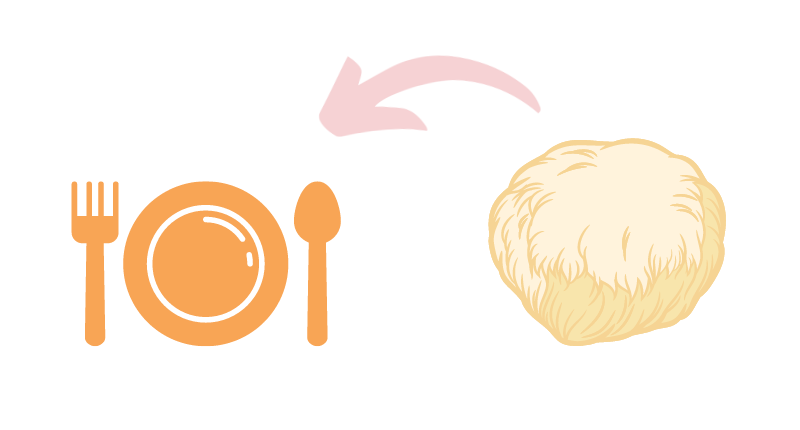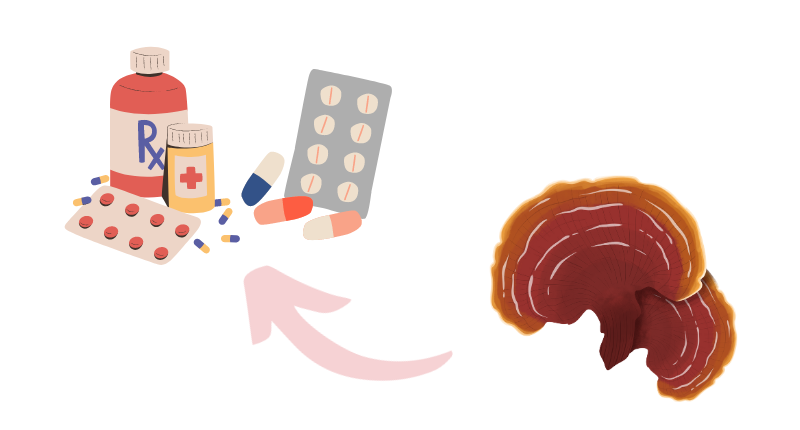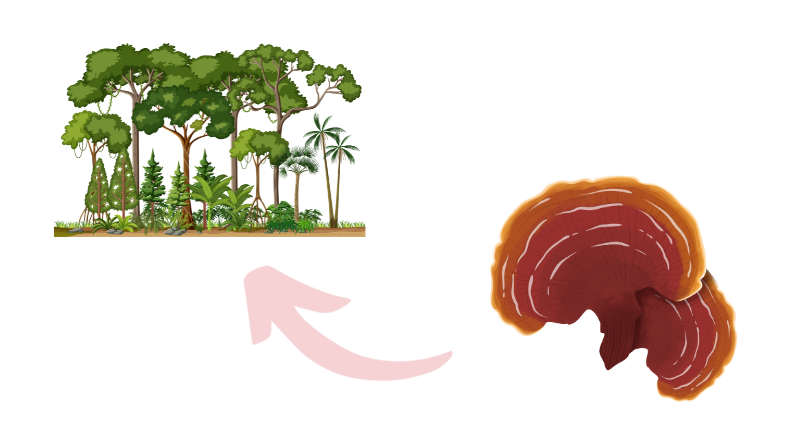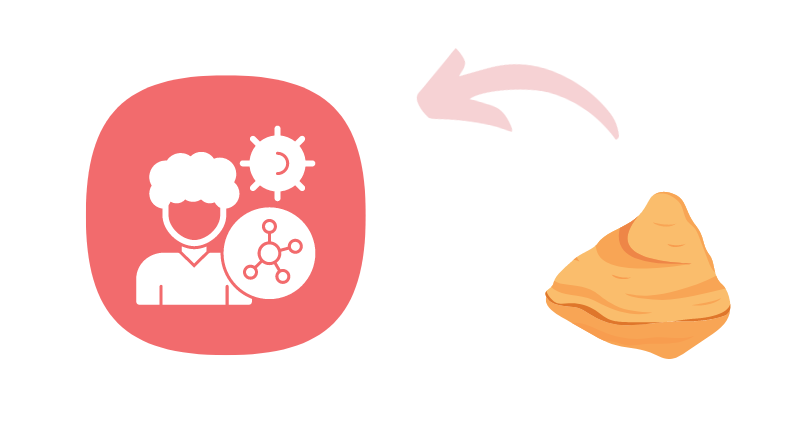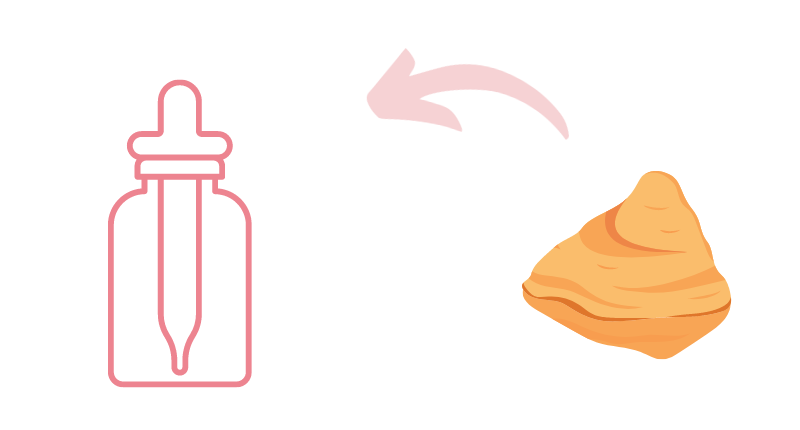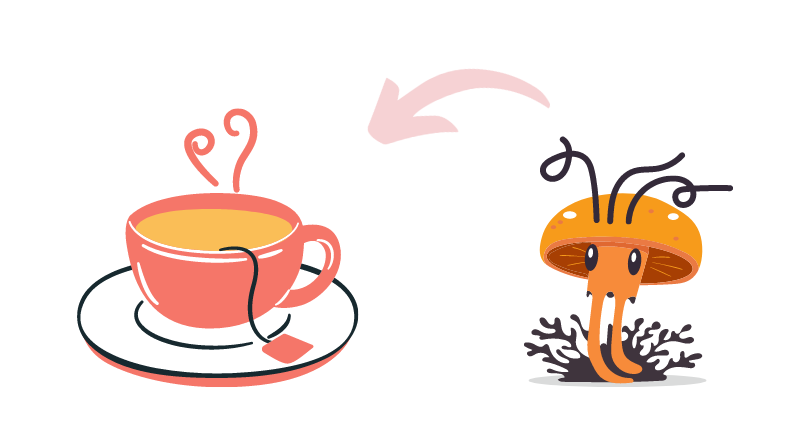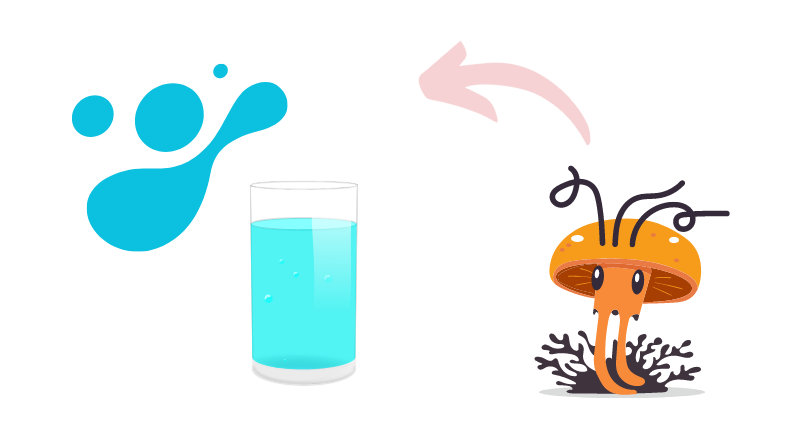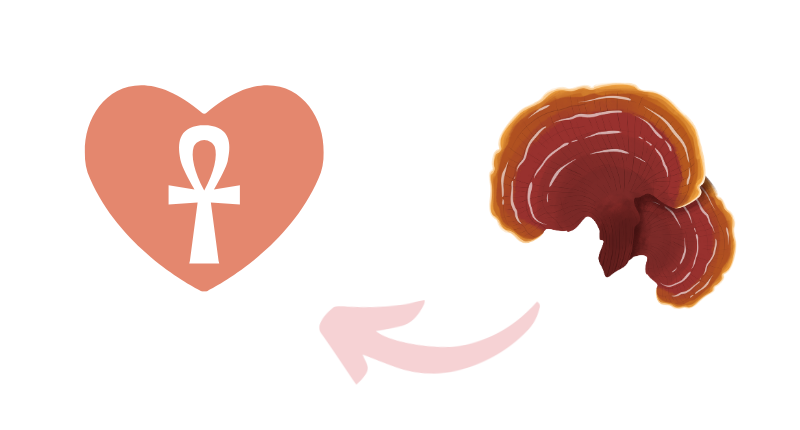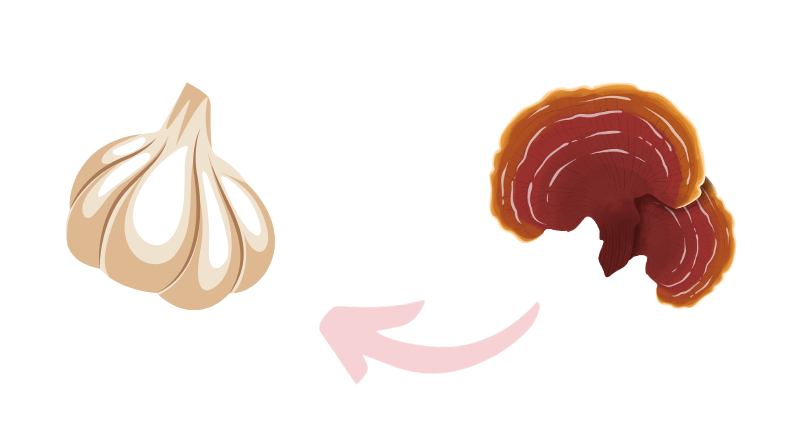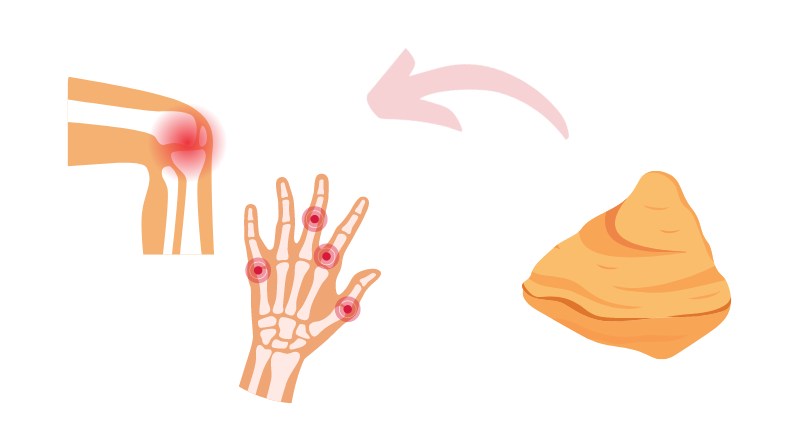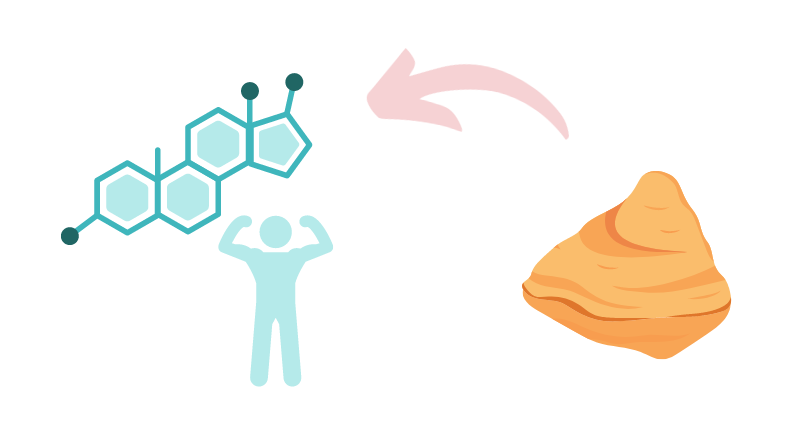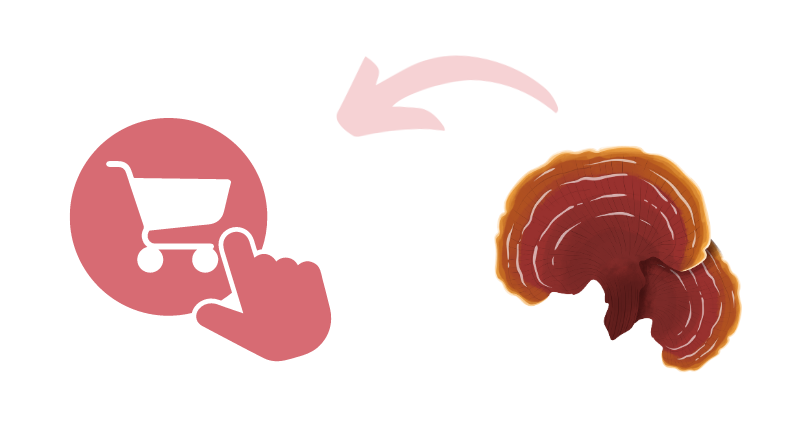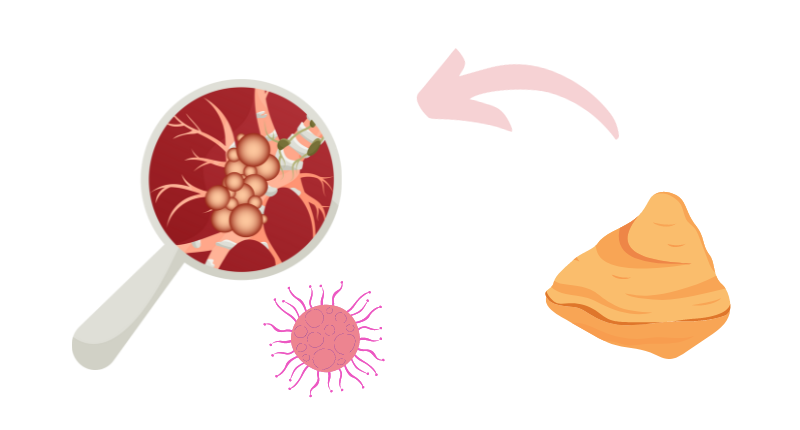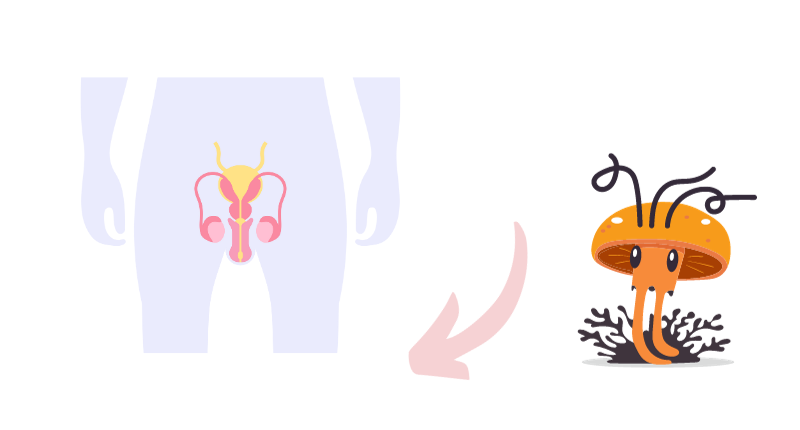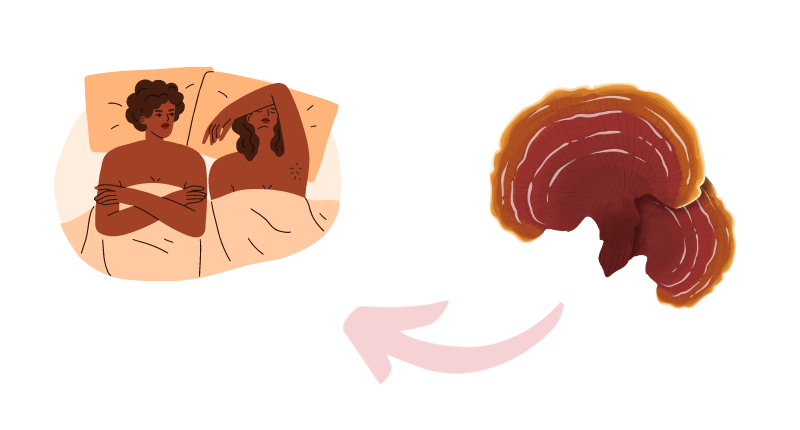Asthma, a respiratory condition marked by spasms in the bronchi of the lungs, has been a persistent adversary to millions worldwide. But as science progresses, we’re constantly seeking natural remedies to ameliorate its symptoms.
Amidst this quest, the Reishi mushroom has emerged as a potential ally. In this comprehensive article, we’ll embark on an expedition to unravel the mystique of the Reishi mushroom, its myriad health benefits, and its potential influence on asthma.
REISHI MUSHROOM: NATURE’S ANCIENT GIFT
Renowned as the “Mushroom of Immortality” in traditional Asian medicine, the Reishi mushroom, scientifically known as Ganoderma lucidum, stands tall with its glossy exterior and woody texture.
For thousands of years, this adaptogenic herb has been revered in countries like China and Japan for its multitude of health-enhancing properties.
TRADITIONAL USE & MODERN RECOGNITION
Historically, the Reishi mushroom was so highly valued that it was reserved for emperors and royalty. It was believed to promote longevity and maintain vitality.
Fast forward to the modern era, and Reishi is gaining recognition in Western medicine too, courtesy of numerous scientific studies validating its health benefits.
REISHI AS A SUPPLEMENT: THE MODERN ADAPTATION
The transformation of Reishi from a traditional remedy to a modern-day supplement has been profound. Many brands are delving into its potential, with companies like Dr. Mush Me leading the way.
Their Reishi tincture supplement, extracted using the advanced Ultrasonic Assisted Extraction technology, ensures that only the fruiting body of the mushroom is utilized, retaining its potent properties.
REISHI & ASTHMA: A DETAILED INSIGHT INTO THE RELATIONSHIP
Asthma, a common inflammatory disorder affecting individuals worldwide, is characterized by periodic symptoms like wheezing, breathlessness, and coughing.
Among the array of natural substances researched to complement standard asthma treatments, the Reishi mushroom has shone prominently.
INFLAMMATION
The primary rationale behind this association is the mushroom’s triterpenoids, especially ganoderic acids [6]. These compounds exhibit potent anti-inflammatory properties, mitigating airway inflammation and potentially leading to symptom alleviation.
By curtailing inflammation, the regularity of asthma flare-ups might also be reduced, subsequently decreasing the dependency on immediate-relief medications.
BRONCHODILATION
Bronchoconstriction, or the narrowing of airways, amplifies asthma symptoms, making breathing laborious. Some studies indicate that specific components within the Reishi mushroom assist in bronchodilation [7], expanding the airways and making breathing easier.
Such properties make Reishi a potentially valuable ally during acute asthma attacks.
ALLERGEN SENSITIVITY
Often, asthma’s onset is tied to an allergic reaction, where the immune system’s heightened response to triggers like pollen culminates in asthma symptoms.
The presence of polysaccharides in Reishi, particularly beta-glucans, can help modulate this immune reaction [8], making it less susceptible to allergens. By tempering the immune system’s sensitivity, Reishi could contribute to reducing the episodes of allergen-induced asthma flare-ups.
ANTIOXIDANT DEFENSE
Oxidative stress has a well-established role in asthma’s progression. Thanks to Reishi’s phenolic compounds, it possesses robust antioxidant capacities [9], neutralizing detrimental free radicals.
By curbing oxidative stress within the lungs, Reishi can protect lung tissues, possibly enhancing lung function and lessening asthma symptom intensity and frequency.
ASTHMA MANAGEMENT: A HOLISTIC PERSPECTIVE
While Reishi showcases potential, it’s crucial to remember that asthma management requires a comprehensive approach. This includes:
- Avoiding Triggers: Recognizing and steering clear of allergens or triggers.
- Regular Monitoring: Keeping track of symptoms and lung function.
- Medication: Using prescribed medicines as directed.
- Natural Adjuncts: Incorporating natural aids, like Reishi, after consulting with healthcare professionals.
REISHI’S VAST SPECTRUM OF HEALTH BENEFITS
Reishi mushroom, renowned as a panacea in ancient traditional medicines, is brimming with an array of health benefits, many of which are being validated by contemporary scientific research.
The therapeutic effects of Reishi span a broad spectrum, reinforcing its stature as a potent medicinal mushroom. Let’s delve deeper into its prominent health-promoting properties:
BOOSTING IMMUNITY:
- Mechanism: Reishi mushrooms are rich in polysaccharides, particularly beta-glucans, which are known to enhance the immune response by activating immune cells like macrophages and T-helper cells [1].
- Significance: A robust immune system is pivotal in defending against various pathogens, preventing illnesses, and ensuring speedy recovery. The modulation of the immune response by Reishi ensures it’s neither too passive nor too aggressive, thereby optimizing its functionality.
ANTI-INFLAMMATORY PROPERTIES:
-
- Mechanism: Reishi’s anti-inflammatory prowess can be attributed to its triterpenoids, especially ganoderic acids. These compounds inhibit the synthesis of pro-inflammatory cytokines and mediate the inflammation process [2].
- Significance: Chronic inflammation is a precursor to several ailments, including cardiovascular diseases, cancer, and neurodegenerative disorders. By attenuating inflammation, Reishi may help in thwarting the onset of these conditions.
ANTIOXIDANT POWERHOUSE:
-
- Mechanism: The phenolic compounds and triterpenes in Reishi mushroom impart its strong antioxidant properties. These antioxidants neutralize free radicals, unstable molecules that can damage cellular structures [3].
- Significance: Oxidative stress, resulting from an accumulation of free radicals, plays a role in aging and many chronic diseases. Reishi’s potent antioxidant action protects cells from oxidative damage, potentially slowing down aging and warding off certain diseases.
LIVER PROTECTION:
-
- Mechanism: Studies have shown that Reishi can improve antioxidant status in the liver, thereby shielding it from harmful toxins and promoting its detoxification capabilities [4].
- Significance: The liver plays a crucial role in detoxifying chemicals, metabolizing drugs, and producing essential proteins. By bolstering liver function, Reishi ensures the body remains in a state of balance and health.
CARDIOVASCULAR SUPPORT:
-
- Mechanism: Reishi helps in regulating blood pressure, reducing LDL cholesterol levels, and preventing blood clots, thanks to its ganoderic acids and other triterpenoids [5].
- Significance: Cardiovascular diseases remain a leading cause of death globally. The multi-pronged cardiovascular benefits of Reishi might aid in reducing the risk factors associated with heart-related ailments.
By comprehensively understanding these benefits, it becomes evident that the Reishi mushroom isn’t just a singular remedy but a holistic solution to a multitude of health concerns. Its properties transcend beyond just immunity and inflammation, offering a balanced approach to overall well-being.
CONCLUSION: REISHI & THE FUTURE OF ASTHMA RESEARCH
The Reishi mushroom, with its historical reverence and modern validation, indeed offers an intriguing avenue in asthma management. While early findings are promising, continued research and personalized medical advice are essential.
The blend of traditional wisdom with modern science might just be the beacon of hope many are seeking in their battle against asthma.
REFERENCES:
- Wang X, Lin Z. Immunomodulating Effect of Ganoderma (Lingzhi) and Possible Mechanism. Adv Exp Med Biol. 2019;1182:1-37. doi: 10.1007/978-981-32-9421-9_1. PMID: 31777013.
- Barbieri A, Quagliariello V, Del Vecchio V, Falco M, Luciano A, Amruthraj NJ, Nasti G, Ottaiano A, Berretta M, Iaffaioli RV, Arra C. Anticancer and Anti-Inflammatory Properties of Ganoderma lucidum Extract Effects on Melanoma and Triple-Negative Breast Cancer Treatment. Nutrients. 2017 Feb 28;9(3):210. doi: 10.3390/nu9030210. PMID: 28264501; PMCID: PMC5372873.
- Kolniak-Ostek J, Oszmiański J, Szyjka A, Moreira H, Barg E. Anticancer and Antioxidant Activities in Ganoderma lucidum Wild Mushrooms in Poland, as Well as Their Phenolic and Triterpenoid Compounds. Int J Mol Sci. 2022 Aug 19;23(16):9359. doi: 10.3390/ijms23169359. PMID: 36012645; PMCID: PMC9408863.
- Ahmad MF, Ahmad FA, Zeyaullah M, Alsayegh AA, Mahmood SE, AlShahrani AM, Khan MS, Shama E, Hamouda A, Elbendary EY, Attia KAHA. Ganoderma lucidum: Novel Insight into Hepatoprotective Potential with Mechanisms of Action. Nutrients. 2023 Apr 13;15(8):1874. doi: 10.3390/nu15081874. PMID: 37111092; PMCID: PMC10146730.
- Meng J, Yang B. Protective Effect of Ganoderma (Lingzhi) on Cardiovascular System. Adv Exp Med Biol. 2019;1182:181-199. doi: 10.1007/978-981-32-9421-9_7. PMID: 31777019.
- El Enshasy, H., & Hatti-Kaul, R. (2013). Mushroom immunomodulators: unique molecules with unlimited applications. Trends in Biotechnology, 31(12), 668-677.
- Gao, Y., Zhou, S., Jiang, W., Huang, M., & Dai, X. (2003). Effects of ganopoly (a Ganoderma lucidum polysaccharide extract) on the immune functions in advanced-stage cancer patients. Immunological investigations, 32(3), 201-215.
- Cör, D., Knez, Ž., & Hrnčič, M. K. (2018). Antitumour, antimicrobial, antioxidant and antiacetylcholinesterase effect of Ganoderma Lucidum terpenoids and polysaccharides: A review. Molecules, 23(3), 649.
- Smina, T. P., Mathew, J., Janardhanan, K. K., & Devasagayam, T. P. (2011). Antioxidant activity and toxicity profile of total triterpenes isolated from Ganoderma lucidum (Fr.) P. Karst occurring in South India. Environmental toxicology and pharmacology, 32(3), 438-446.

